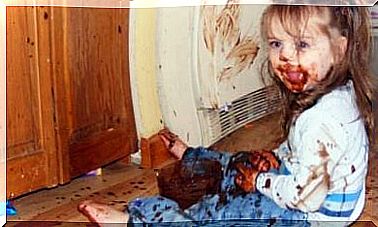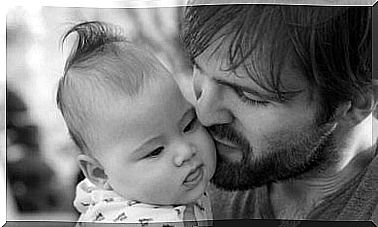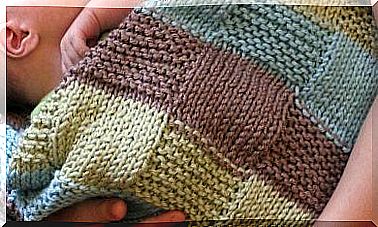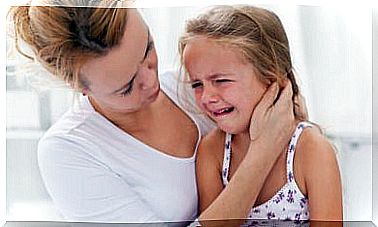How Much Should A Child Sleep Based On His Age?
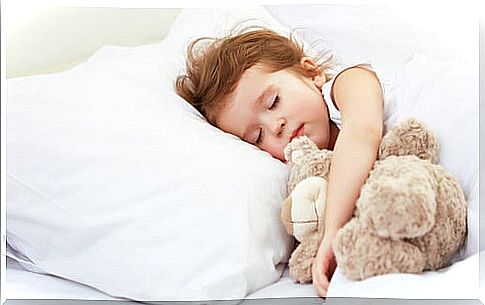
Lack of sleep in babies can have many negative long-term effects. Not only that: their academic performance can also be affected. Consequently, it is essential to pay attention to and control this aspect of our children’s lives. But how long should a baby sleep? Find out with this article.
It is very common for our children to suffer from sleep disorders, especially in the absence of a routine to help them sleep. We must organize ourselves and know perfectly how much sleep a child must sleep based on his age: in this way we can avoid any problems that may arise in the future due to lack of sleep.
How long should a baby sleep
Sleeping the necessary number of hours will allow children to develop properly, both physically and mentally. According to the recommendations of the American Academy of Pediatrics published in the Journal of Clinical Sleep Medicine, here are the amounts of hours a child must sleep, based on his age:
From 4 months to 1 year
Generally, a newborn needs to sleep for 16 to 17 hours. During the night he sleeps 9 hours, while the other hours of sleep are distributed throughout the day.
As the child grows, the number of these hours is reduced. At the age of one, he should sleep 11 hours at night and 3 hours during the day.
1 to 3 years
When the baby is between the first and second years of age, he should rest for 10 to 14 hours a day. When he is between 2 and 3 years old, he begins to abandon the afternoon siesta. In these first few years, what is essential is that you sleep, at least, 10 hours a day.
From 4 to 5 years
In this phase, start sleeping between 10 and 12 hours, during the night. He doesn’t even need a siesta from this moment on, unless he is particularly tired. In this case, it’s not bad for you to rest for a while after eating. The child must sleep enough to have a good academic performance.
From 6 years onwards
As the baby grows, the hours of sleep continue to decrease. Between the ages of 6 and 8, he will need between 11 and 12 hours of sleep, while between the ages of 10 and 12 he will need at least 10 hours.
In the case of a teenager over 13, the rest time needed is between 8 and 10 hours.
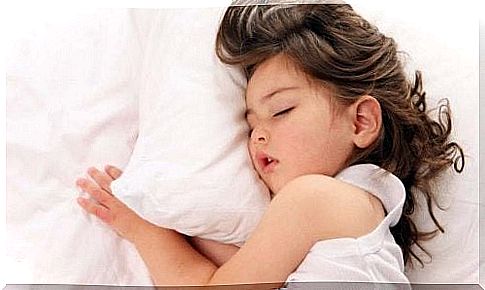
Benefits of adequate rest
Sleep is absolutely necessary for children and adolescents. Sleeping the indicated hours will allow them to have the necessary energy to carry out their daily tasks and have a better academic performance. These are some of the benefits of proper rest:
- Improvement of attention.
- Emotional regulation.
- Better behavior.
- Improvement of the quality of life.
- Greater learning ability.
Consequences of not sleeping the necessary hours
Just as resting for the necessary number of hours brings many benefits, on the contrary not doing so can have decidedly negative effects on children: the availability of energy and their ability to learn can be seriously compromised. These are some of the consequences of not getting enough sleep:
- Children who sleep fewer hours than they should often have poor academic performance.
- In addition, their language development is usually much slower.
- By sleeping less, you are losing some of your REM sleep. This phase is essential for the child to be able to imprint in his memory what he has learned during the day and ensure that his brain recovers its energy.
- Lack of sleep can also affect the baby’s immune system. As a result, they may be more prone to being infected with colds, flus, and other infectious processes.
- In children who sleep only 5 hours, the risk of becoming an adult with obesity doubles.

Tips to help your baby sleep
As a parent, it is very important to know how long a baby should sleep and, if he is having trouble sleeping or is not in the habit of sleeping the hours he needs, to help him get the right habit.
Thanks to the following actions, you can help him get him to rest according to the needs of his body:
- It is important that the baby sleeps in a comfortable bed, with low lights and a pleasant temperature.
- It is better not to receive visitors, play games or listen to loud music – all this could disturb his sleep.
- Avoid consuming drinks that contain caffeine after noon.
- Establish a bedtime routine.
- Wake up the baby at the same time and encourage him to sleep without the need for parents to be present.
- Now that we know how much sleep a baby needs for his age, it’s important to take steps to help him get to sleep properly. There are many consequences caused by insufficient sleep: by adopting the habits that have been exposed, we can avoid a low performance in the present and big problems in the future.
